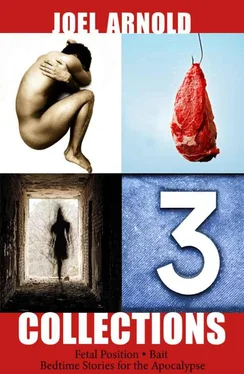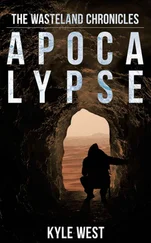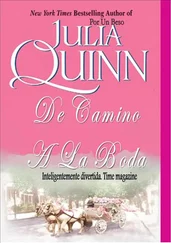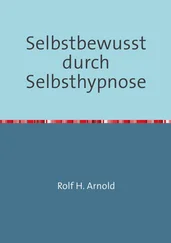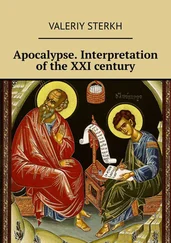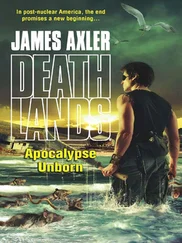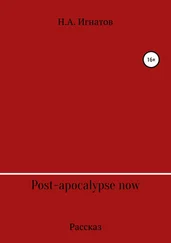Dr. Leroy sighed. “You have to take it easy for a while. No hunting, no shoveling. I don’t want you to change a goddamn light bulb unless you have to. You need rest. Okay? Take the meds I’m prescribing. Come back in a week.”
The days passed slowly. Pearce missed the guys at his construction job. They sent him a get-well card, called now and then to shoot the shit. But it wasn’t the same. To be here . Shut in here , an invalid, surrounded by all these memories of her, of Mary. Her essence seeped from the walls, the furniture. It was comforting, but sometimes it was too much.
He wrapped the tanned hide of the deer around him and sat outside on his front step. He’d been ready to die out there in the woods. When he stared into that dying deer’s eyes, he’d wanted to take its place. He pulled the hide tight around his body, held it close to his face and breathed in its musty odor.
A shadow spilled over him. He looked up, embarrassed in his intimacy with the deer hide. A woman hovered over him holding a black plastic bag.
She pointed back at the house across the street. Her mouth was an awkward line, her cheeks puffy and flush. Even before she pointed to the Bolt house, Pearce knew she was related. The same face, the same posture, the same lack of style. A daughter, perhaps?
She mumbled something, her mouth barely moving.
Pearce leaned forward. “Pardon?”
“Ankoo. Ma say ankoo.”
Thank you .
Again, she pointed back to the Bolt house. She reached in the bag and pulled out a blanket. Shook it open. Panels of colorful fabric exploded on Pearce’s lap. A quilt.
No. It was more than a quilt.
Pearce’s pupils dilated at the ménage of threads and fabrics. He’d never seen anything like it. Entire dioramas had been needle-pointed and stitched, so many different materials snipped and shaped and sewn onto it. The detail was amazing. Pearce easily recognized himself in some of the scenes.
Silks, satins, cottons, denim. Pearce became lost in it. Feathers. Dried flowers. Seeds. Bits of bark. What other materials had been used? He saw himself with his rifle, stalking a deer, and goddamn, if it didn’t look like the very deer he now wore — there was even a spot of red on the deer’s upper shoulder where it had been shot, a trail of blood sewn into the goose-down snow.
The woman hovered over him expectantly.
“Oh,” Pearce said. Looking up from the thing felt like being pulled from quicksand. “Thanks. I — this is too much.”
She shook her head. “Ankoo,” she said, pointing at him.
“Okay.”
She held out her hand. Pearce shook it, her grip light and clumsy. He watched her leave. When he turned back to the quilt, his heart froze.
Mary .
Mary sitting at an easel, painting.
Her favorite hobby. Her passion. And here, on a panel in the middle of the quilt, in stunning detail, was Mary. Painting.
Wearing the clothes she wore the day she died.
The day a drunk driver drove into her head-on.
Pearce held the quilt up to his nose and breathed in. Jesus, her smell . The smell that had faded slowly, agonizingly, from her pillow until Pearce thought he would never smell her again, never remember the fragrance of her, but here, now, on this quilt, it was her, her smell, and Jesus, oh Jesus, what is happening to me?
He spent that night wrapped inside of it. Although its surface was decorated with a multitude of textures, the underbelly was a smooth salmon-colored silk. He took in deep breaths of Mary, afraid that the scent would wear off and he’d be left with only the memory once again. He wanted that memory to be strong.
She filled his mind—
—painting in overalls — Osh Kosh B’Gosh — and nothing else. Concentrating on the canvas, the paint, the brush. He’d slide his hand over her shoulder, over her breast, roll her nipple between his thumb and forefinger, and she’d giggle, sweet and girlish, but she wouldn’t stop moving that brush, spreading the paint on the canvas, her eyes as focused as laser beams.
And—
—casting a fly-rod on the Firehole River on that trip to Yellowstone, the grace of her casts something uncatchable on film, because it included everything around her, the air, the current, the sparkle of sun at the point where her fly kissed the river’s surface.
And—
—six months pregnant, making lists of girl names, rubbing her hands lovingly over the swell of her belly, her eyes lighting up like stadium lights when she felt those first kicks — ‘ Here, feel.’ She made Pearce listen, put his head on her abdomen, rubbed his hair until he felt it, felt that tiny foot or hand knock him a good one in the cheek. That was all Pearce knew of the daughter that was never born. That was the last time he talked to his wife of eight years, unless you counted later that evening when he identified her body at the morgue. “Yes, that’s Mary,” he whispered to the coroner as he held her lifeless hand.
And this was Mary; being there when he needed her, wanted her, just her presence enough to make him happy.
Morning. Pearce rolled out of bed and looked across the street, the quilt still wrapped around him. Black patches of windows on the dark red siding of the Bolt house stared blankly back at him.
He dressed. Folded the quilt, slid it in a garbage bag, donned a parka and boots, and walked over a starched blanket of snow to the old woman’s house. He knocked on her door.
Ms. Bolt opened. Struggled with a smile.
Pearce held out the bag. “I can’t accept this.”
Ms. Bolt looked at the bag, but made no move to take it. “Come in,” she said. Her mouth hardly moved, her lips a straight line, her left eye shut, her right eye open partway. She was small and frail, her knit pink sweater worn thin in spots.
Pearce hesitated.
“Please,” Ms. Bolt said.
Pearce stepped into her house. He momentarily forgot about the bag he held.
Color dripped everywhere, splashed in patches on the walls, on the furniture. It disoriented him for a moment, and he hesitated in the foyer and gaped at the quilts spread over the living room — over the walls, the furniture, the floor. Everywhere.
Ms. Bolt cleared off a wooden chair. “It keeps me busy,” she said. “Please, have a seat. And please — call me Eugenia.”
“You’ve done all these yourself?”
She tilted her chin toward the ceiling and regarded him down the bridge of her nose. “Angela and I. You met her?”
The ankoo girl.
“Yes. Your daughter?”
She nodded.
Pearce’s eyes roved.
Colorful, intricate needlepoint. Dyed pieces of cloth arranged in wild geometries. Fields of flowers. Orgies of fabrics. Self-contained worlds of cotton and thread and silk and batting, all of them different, all of them intense.
“What is it you want?” Eugenia asked.
Pearce realized he still held the bag in his hand. He came here to give it back, but now — “I don’t want anything.”
He noticed the image of a bird, made of tiny black and white squares and triangles hidden in the quilts, its head turned to the side, its visible eye a shiny fleck of obsidian. It was everywhere, like a trademark.
His days of boredom, of loneliness suddenly weighed heavily on him, and even as he sat there, he felt it crushing him. He sighed. Maybe there was something he wanted. “Can you teach me? Teach me how you do this?”
She scrutinized him with her right eye. “Why?”
He remembered Dr. Leroy—
No hunting. No shoveling. No…
He shrugged. “Because I can’t do anything else.”
She gave him a list of materials. Simple things. Needles. Threads. Fabrics. Batting.
Читать дальше
